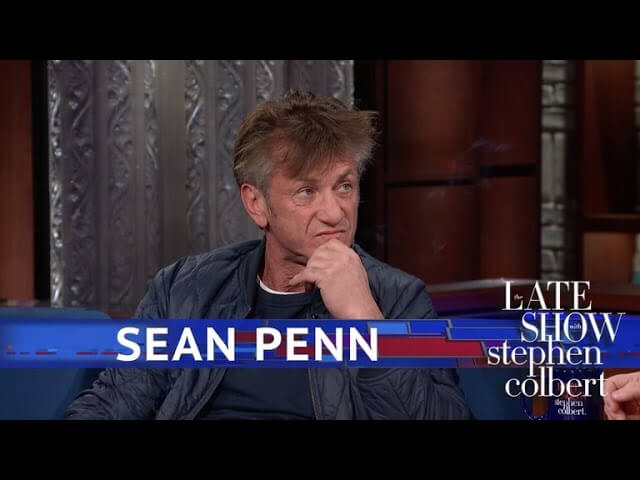In a smoky Late Show interview, Sean Penn talks Parkland and giving up acting for writing

On The Late Show to promote his new novel Bob Honey Who Just Do Stuff (initially written as his nom de plume Pappy Pariah), Sean Penn referred obliquely to his long and storied history of being a very public prick by suggesting to Stephen Colbert that readers might enjoy his book “despite being predisposed to loathe its author.” And while Penn wasn’t exactly ornery during their two-segment talk on Monday’s show, Colbert had his hands full wrangling the typically intense actor, director, author, and activist. Chain smoking like The Late Show was the 1960s Tonight Show, and sporting a thoroughly disheveled look all over, Penn fielded Colbert’s gingerly probing questions on subjects like Penn’s recent announcement that he’s “fallen out of love” with acting, his reportedly sledgehammer satirical novel, and the American political situation which Penn says spawned the violent misanthropy in Bob Honey Who Just Do Stuff. He also made a cryptic reference to Netflix “paying off settlements,” which he and Colbert left hanging. (Form your own theories there.)








































